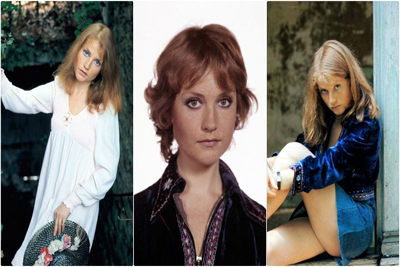
Considered by many as one of the most prolific actresses in the world and renowned for her portrayals of fragile, wide-eyed innocents as well as devious femme fatales, Isabelle Anne Madeleine Huppert was born to Annick, an English language teacher and Raymond Huppert, a safe manufacturer, in Paris on 16 March 1953. Acclaimed for her versatility, subtle gestures and restrained emotions, she began attending her first acting classes at the tender age of 14, appeared in her first film by 18 and became an international movie star at 23. Although her father was Jewish, Isabelle was raised in her mother's Catholic faith, along with her three sisters and a brother, in Ville-d’Avray, in the western suburbs of Paris.
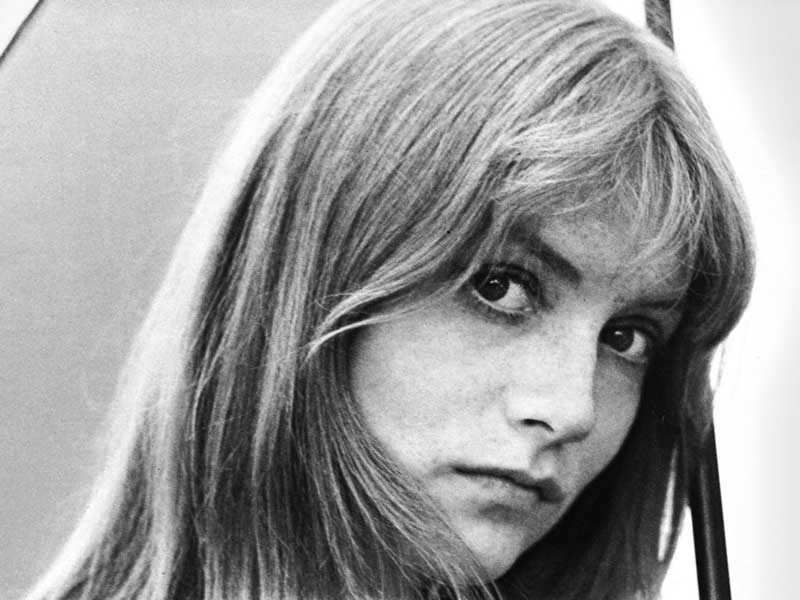
After attending high school at the St-Cloud Gymnasium, Isabelle studied Russian at university and earned a B.A. But as she had developed an interest in acting as a teenager, she was encouraged by her mother to enter the Versailles Conservatory in 1968, where she won the first prize for acting in Alfred de Mussel’s Un caprice.
After that, she spent one year at the famed Rue Blanche theatre school and then entered the prestigious Conservatoire national supérieur d'art dramatique, the National Academy of Dramatic Arts in Paris, run by the French Ministry of Culture, followed by an illustrious theatrical career.
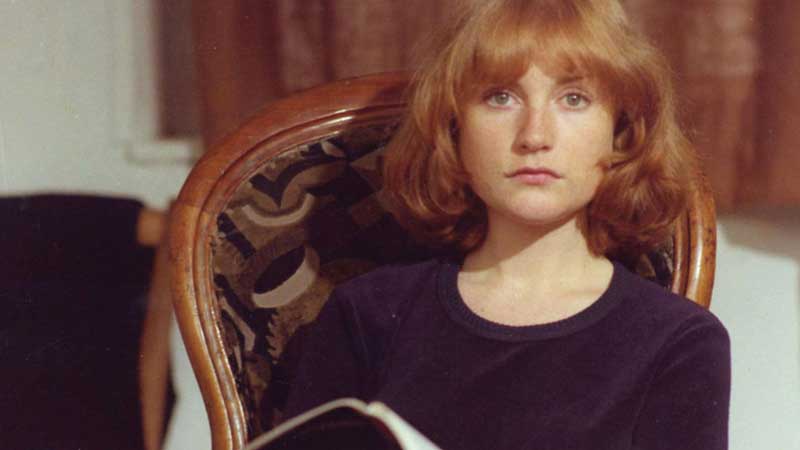
Huppert was hardly seventeen when she made her television debut in 1971 with Le Prussien and made her film appearance, a walk-on part in Faustine et le bel été (Faustine and the Beautiful Summer 1971). But she was noticed in Claude Sautet’s Caesar & Rosalie (1972), in which she played the role of Marite, younger sister of Romy Schneider.
Apart from that, she also appeared in the controversial Les Valseuses (1974), which was strongly criticised for its vulgarity, depiction of sexual acts, nudity and moral ambiguity, but later became a cult film. Nevertheless, the film brought her to light.

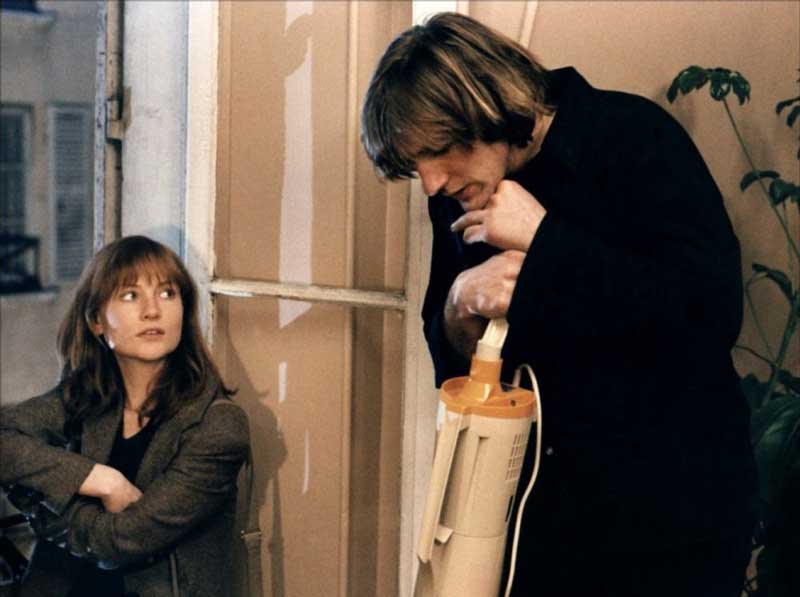
Following few more films, Isabelle appeared in Bertrand Tavernier’s critically acclaimed Le juge et l’assassin (The Judge and the Assassin 1976), but her international breakthrough came with La Dentellière (The Lacemaker 1977). In the film, her portrayal of Pomme, a young woman, who suffered a nervous breakdown after being abandoned by her lover, was profusely acclaimed by the critics and the public, and she earned the British Academy of Film and Television Arts Award (BAFTA) as the most promising newcomer to Leading Film Roles. Her winning spree continued as she was named best actress at the Cannes film festival for her brilliant performance in Violette Nozière (1978) as a debauched teenager who murdered her parents.
The film, directed by Claude Chabrol, was the first of the seven films she worked with the reputed French director. In the next year, Isabelle appeared as Anne, one of The Bronte Sisters (1979), directed by André Téchiné.

Throughout the 1980s, Isabelle Huppert’s career graph grew up steadily, as she started to appear in a wide variety of roles and proved herself as a mature actress. She preferred to play the roles of the women marked by tragedy and surrounded by mystery. Her choice of roles and collaboration with some of the most renowned directors in the world earned her a reputation as an intellectual actress. However, she believed that she was only a tool of the directors and only follows their instruction to the best of her ability, with hardly any improvisation. Despite her seemingly expressionless face and sparing facial expressions, she had the immense capability to express the moods and mental state of her characters with precision and great sensitivity. However, her first American film in the English language, titled Heaven’s Gate (1980), proved to be a box office failure. But throughout the decade, Isabelle Huppert continued to explore enigmatic and emotionally distant characters, most notably in Maurice Pialat's Loulou (1980), considered as a masterpiece of subtlety and eroticism; Jean-Luc Godard’s Sauve qui peut (la vie) (1980); Mauro Bolognini’s Lady of the Camelias (1981); Diane Kurys' famed autobiographical film Coup de foudre (1983), depicting the story of two young women, both victims of World War II, who decide to leave their dull husbands and live together; Christine Pascal’s thriller La Grace (1984); American neo-noir psychological thriller The Bedroom Window (1987), in which she appeared as Sylvia, who witnessed a man attacking a young woman from the window of her lover’s bedroom in naked;and Claude Chabrol's moving war-time tale Une Affaire de Femmes (A Story of a Woman 1988), for which Isabelle earned the Best Actress Award at the Venice Film Festival.

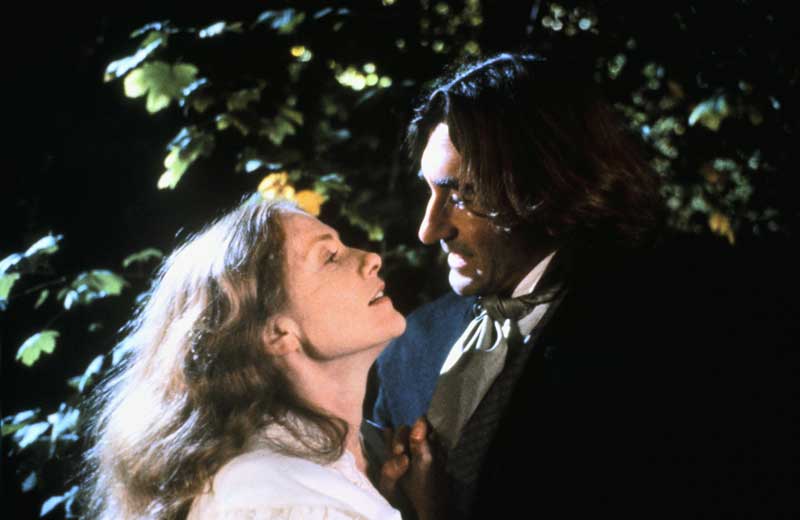
In several films, Isabelle excelled in playing women with questionable morals. In Claude Chabrol’s film adaptation of Gustave Flaubert’s Madame Bovary (1991), she played the tragic role of Emma Bovary, an unhappy middle-class wife whose adulterous affairs eventually led to her suicide. For her performance in the film, she won the Best Actress Award at Moscow International Film Festival. In the same year, Huppert also appeared in Malina (1991), depicting the relationship of a female writer with two men of different nature, which was selected for the Cannes Film Festival.
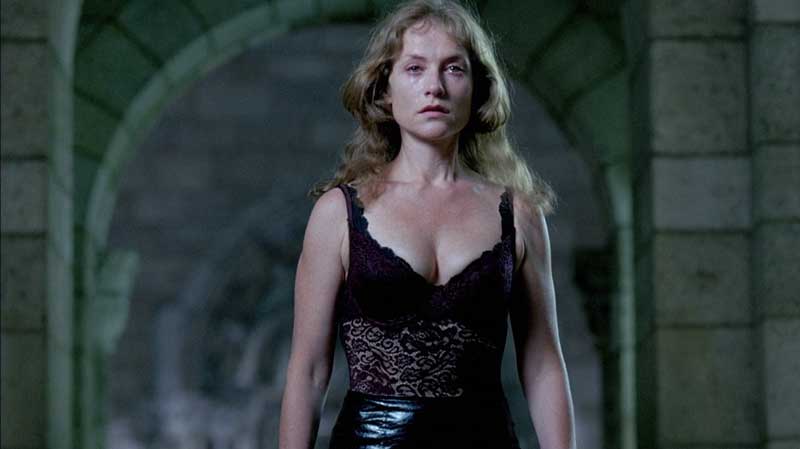
During the 1990s, she appeared in several other successful films, which include among others Hal Hartley’s Amateur (1994), in which she starred as a nun turned into a pornographer. She also appeared as an unfaithful wife in Christian Vincent’s touching drama La Séparation (1994); a psychopathic post mistress and murderer in La Cerémonie (1995), for which she received a French César Award; as Marie Curie in Les Palmes de M. Schutz (1997); a career woman dating a young, bisexual bartender in L’École de la chair (The School of Flesh 1998).

Isabelle Huppert’s versatile screen presence has encouraged the first cinematic attempts of several young directors. In La Pianiste (The Piano Teacher 2001), the disturbing drama directed by the Austrian director Michael Haneke, she amassed acclaim as a sexually repressed music instructor, who became involved with a young pianist. She created history as the only actress to earn the Best Actress award at Cannes for the second time for her unbelievable performance in the film. She turned to comedy with 8 femmes (8 Women 2002), directed by the young French film director François Ozon, about a group of women, played by Catherine Deneuve, Emmanuelle Béart, and others, who started to investigate a murder. Simultaneously, she also turned to serious characters again, as she played the role of Hélène, an attractive middle aged mother, having an incestuous relationship with her teenage son in Ma Mère (2004), directed by Christophe Honoré. In the same year, she appeared opposite Dustin Hoffman in I Heart Huckabees (2004), a comedy about detectives who solve their clients’ existential problems.
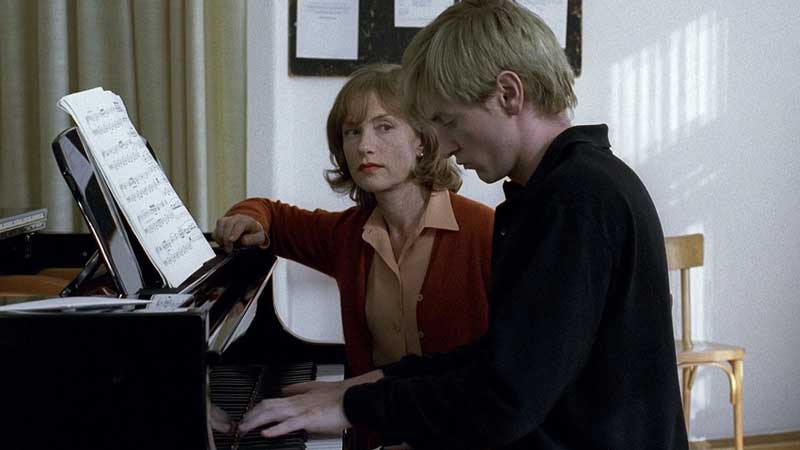
Her other films, during the first decade of the 2000s, include among others, Gabrielle (2005), depictinga seemingly ideal marriage thrown into an embarrassing turmoil;in L’Ivresse du pouvoir (The Comedy of Power 2006), she starred as a judge who heads an investigation into corporate corruption; in Un Barrage contre le Pacifique (The Sea Wall 2008), Isabelle appeared as a plantation owner in French Indochina; Home (2008), depicted the life for an isolated rural family, facing a difficult situation, when an abundant major highway next to their property is opened after ten years of construction; and in White Material (2009), she portrayed a French farmer trying to defend her coffee plantation in an unnamed African country from the rebels.

During the second decade of the 2000s, Isabelle appeared in several important films, which include Michael Haneke's Oscar winning film Amour (2012), in which she played a supporting role as the daughter of an elderly couple. In the film directed by Sang-soo Hong of South Korea and titled In Another Country (2012), she portrayed three different women dealing with romantic entanglements in a three-tiered story, centred on three sets of French tourists visiting the same seaside resort. In Abus de faiblesse (Abuse of Weakness 2013), a semi-autobiographical film written and directed by Catherine Breillat, Huppert played the role of Maud Shainberg, who suffered a cerebral haemorrhage that resulted in her paralysed on one half of her body. After her appearance in the American crime thriller Dead Man Down (2013), she played the mother of a woman, who has lost her child in The Disappearance of Eleanor Rigby: Them (2014), which is the collective title of three films, depicted from the perspective of three angles. In the same year, she also played a farmer’s wife, flirting with a younger man in La ritournelle (Paris Follies 2014).


Isabelle Huppert starred opposite Gérard Depardieu in Valley of Love (2015), a drama about divorced parents, who reunite in Death Valley at the invitation of their son, which they received after his suicide, six months ago. However, she drew profuse critical acclaim and her first Academy Award nomination, for her performance in Paul Verhoeven’s Elle (2016), about the action of a successful businesswoman, after she came to know all about the unknown man who once raped her. Her subsequent films include, Michael Haneke’s Happy End (2017), a drama about a wealthy dysfunctional French family; Benoît Jacquot's psycho-thriller Eva (2018), in which Huppert, as a noble prostitute, drives a fraudulent writer into bondage and ultimately into catastrophe; Greta (2018), a horror movie, in which she played the role of a lonely widow;and the family drama Frankie (2019), in which Isabelle as the grande dame brought three generations of her family together on a trip to Portugal.


In her long career, Isabelle Huppert has collaborated with celebrated names like Claude Chabrol, Benoît Jacquot, Werner Schroeter, Otto Preminger, Jean-Luc Godard, Claire Denis, Claude Goretta, and Mia Hansen-Løve. Her portrayals of the various challenging roles have already earned Huppert numerous awards, which include the French César, the European Film Award, Berlin's Silver Bear, Cannes' Best Actor Award and the Golden Globe. She was bestowed with the French Order of Merit in 1994 and the Legion of Honor in 1999 for her contributions to the arts. In her personal life, she never married, but has been in a steady relationship since 1982 with writer, producer and director Ronald Chammah. They have three children, including Lolita Chammah, also an actress, with whom she acted in five films.